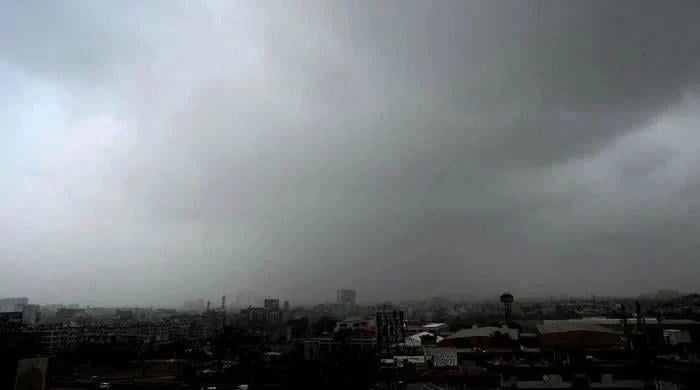Mission Palestine: FM Qureshi urges Muslim countries to adopt united stance at UN
Qureshi shares his views with Muslim envoys on Gaza's volatile situation, stresses upon need to internationalise the crisis
May 20, 2021
- FM Qureshi arrives in New York along with the foreign ministers of Turkey, Palestine, Tunis.
- He will attend the emergency meeting of UNGA on the situation in Palestine today.
- An emergency meeting of the the UNGA has been convened after the UNSC failed to deplore Israeli violence.
NEW YORK: Foreign Minister Shah Mehmood Qureshi on Thursday held consultations with the envoys of a few Muslim countries to adopt a united stance at the United Nations General Assembly (UNGA) for Palestine.
The foreign minister has arrived in New York to attend the emergency meeting of the UNGA on the Gaza predicament today. Israel has killed nearly 250 Palestinians and as per most reports, injured over 1,400 people since May 10.
Shah Mehmood, in a dinner hosted at the Pakistan Consulate General, discussed the grave situation in the Middle East with the permanent representatives of the OIC countries.
UNGA President Volkan Bozkir and the foreign ministers of Turkey, Palestine and Tunis were also present at the dinner.
He briefed the envoys about Pakistan's efforts, urging them to adopt a unanimous stance at the UNGA.
In his address, the foreign minister highlighted the human rights violations being committed by Israeli security forces against innocent Palestinians.
He shared his views on the volatile situation and stressed upon the need to internationalise the crisis.
FM Qureshi, during his stay in New York, will also meet media representatives and brief them on Pakistan's stance on local and international matters.
Qureshiis undertaking the UN visit on the instructions of Prime Minister Imran Khan to highlight the human tragedy unfolding in the region due to Israeli occupation and relentless air attacks.
UNGA session on Palestine
The UN General Assembly is holding an urgent meeting to discuss the “grave deterioration” of the situation in the Occupied Palestinian Territory, including East Jerusalem, a spokesperson of the 193-member body’s president announced Monday.
Spokesman Brenden Varma said that the session on Thursday, May 20, is in response to a request from the chairmen of the OIC Group and the Arab Group at the UN made in a joint letter to the Assembly president, Volkan Bozkir of Turkey.
The letter was signed by Niger’s Ambassador Abdou Abarry, who is chairman of the OIC Group, and Algeria’s Ambassador Sofiane Mimouni, who heads the Arab Group.
Read more: US progressives seek to block arms sale to Israel
Responding to questions, the spokesperson said the plenary meeting will debate the situation in the Middle East, but so far no resolution has been submitted.
The general assembly meeting follows the failure of the UN Security Council to call for an immediate ceasefire between Israel and Hamas, which rules Gaza.
So far, four Security Council meetings have taken place, with no concrete outcome after the United States blocked a joint statement calling for de-escalation of hostilities in the region.
The council meeting on Sunday came after the US reportedly blocked resolutions that would have deplored Israel’s military response and called for a ceasefire.
Read more: Biden urges 'de-escalation', Netanyahu says will press on with Gaza attacks
Nearly 250 people have been killed in the intense bombing of the besieged enclave of two million people.
Israel has justified its bombing campaign as a retaliation to rocket attacks by Hamas fighters. But the Hamas movement said its actions were a response to the Israeli policy of forced displacement of Palestinians in occupied East Jerusalem and the storming of Al-Aqsa Mosque by Israeli forces last week.
Israel had missed a Hamas deadline to withdraw its forces from the mosque compound.
The latest round of inaction also comes as US President Joe Biden has given no signs of plans to step up public pressure on Israel, instead repeatedly stressing Israel’s right to defend itself.









